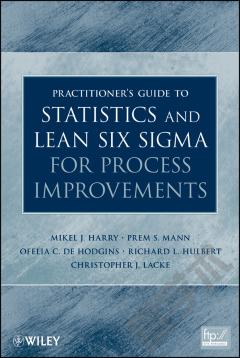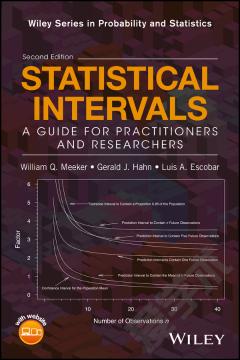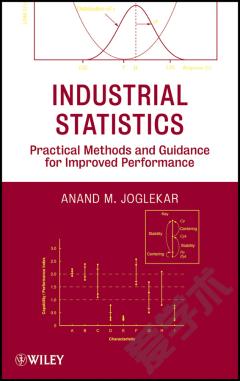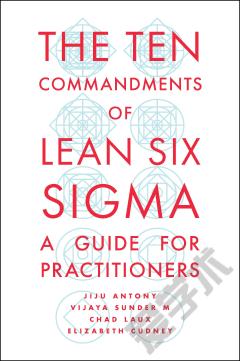Practitioner's Guide to Statistics and Lean Six Sigma for Process Improvements
This hands-on book presents a complete understanding of Six Sigma and Lean Six Sigma through data analysis and statistical concepts In today's business world, Six Sigma, or Lean Six Sigma, is a crucial tool utilized by companies to improve customer satisfaction, increase profitability, and enhance productivity. Practitioner's Guide to Statistics and Lean Six Sigma for Process Improvements provides a balanced approach to quantitative and qualitative statistics using Six Sigma and Lean Six Sigma methodologies. Emphasizing applications and the implementation of data analyses as they relate to this strategy for business management, this book introduces readers to the concepts and techniques for solving problems and improving managerial processes using Six Sigma and Lean Six Sigma. Written by knowledgeable professionals working in the field today, the book offers thorough coverage of the statistical topics related to effective Six Sigma and Lean Six Sigma practices, including: Discrete random variables and continuous random variables Sampling distributions Estimation and hypothesis tests Chi-square tests Analysis of variance Linear and multiple regression Measurement analysis Survey methods and sampling techniques The authors provide numerous opportunities for readers to test their understanding of the presented material, as the real data sets, which are incorporated into the treatment of each topic, can be easily worked with using Microsoft Office Excel, Minitab, MindPro, or Oracle's Crystal Ball software packages. Examples of successful, complete Six Sigma and Lean Six Sigma projects are supplied in many chapters along with extensive exercises that range in level of complexity. The book is accompanied by an extensive FTP site that features manuals for working with the discussed software packages along with additional exercises and data sets. In addition, numerous screenshots and figures guide readers through the functional and visual methods of learning Six Sigma and Lean Six Sigma. Practitioner's Guide to Statistics and Lean Six Sigma for Process Improvements is an excellent book for courses on Six Sigma and statistical quality control at the upper-undergraduate and graduate levels. It is also a valuable reference for professionals in the fields of engineering, business, physics, management, and finance.
{{comment.content}}








 京公网安备 11010802027623号
京公网安备 11010802027623号